 Petzlover
Petzlover Chiweenie is originated from United States but Sarplaninac is originated from Macedonia. Chiweenie may grow 27 cm / 10 inches shorter than Sarplaninac. Chiweenie may weigh 34 kg / 74 pounds lesser than Sarplaninac. Both Chiweenie and Sarplaninac has almost same life span. Both Chiweenie and Sarplaninac has almost same litter size. Chiweenie requires High Maintenance. But Sarplaninac requires Moderate Maintenance
Chiweenie is originated from United States but Sarplaninac is originated from Macedonia. Chiweenie may grow 27 cm / 10 inches shorter than Sarplaninac. Chiweenie may weigh 34 kg / 74 pounds lesser than Sarplaninac. Both Chiweenie and Sarplaninac has almost same life span. Both Chiweenie and Sarplaninac has almost same litter size. Chiweenie requires High Maintenance. But Sarplaninac requires Moderate Maintenance
 The Chiweenie is a small dog developed in the 1960’s as a hybrid/cross between the Dachshund and the Chihuahua. Due to their small size and big personalities, they are an extremely popular designer breed. They are easy to care for and their personality and activity level is much like the Chihuahua side of the hybrid. The Chiweenie can look like either of its parents if it is first generation. If it is second or third generation it is likely to resemble the parents more as they already look like one of the two breeds. The second and third generations will look like the mix more than either of the originators.
The Chiweenie is a small dog developed in the 1960’s as a hybrid/cross between the Dachshund and the Chihuahua. Due to their small size and big personalities, they are an extremely popular designer breed. They are easy to care for and their personality and activity level is much like the Chihuahua side of the hybrid. The Chiweenie can look like either of its parents if it is first generation. If it is second or third generation it is likely to resemble the parents more as they already look like one of the two breeds. The second and third generations will look like the mix more than either of the originators.
The Chihuahua is the smallest breed of dog in the world and they originated in Mexico. The Daschund is a hunting dog from Germany with a long body and short legs. The Chiweenie is a nice looking cross breed that loves people and is very affectionate. They were developed in the United States.
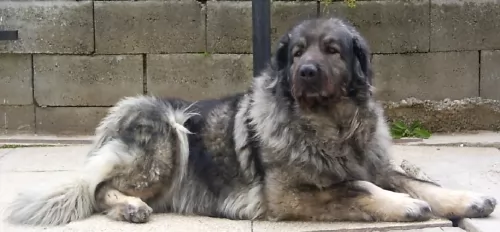 Hailing from Macedonia, the beautiful Sarplaninac dog was developed as a guardian of livestock and is large enough to fight off large predators like bears and wolves.
Hailing from Macedonia, the beautiful Sarplaninac dog was developed as a guardian of livestock and is large enough to fight off large predators like bears and wolves.
Nobody is too sure of the breeds exact origins, though it is thought that its ancestors came to the Balkan Peninsula with people migrating from ancient Asia.
This huge dog is one of the oldest native breeds from ancient Molosser breeds. The dog was recognized in 1939, and in 1954 it became known as the Yugoslav Shepherd Dog. Later the name changed and the dog was recognized by the United Kennel Club in 1995.
 A first-generation Chiweenie can look like either of the breeds they are crossed with. However, the second and third generations will have the hybrid look for the most part. No two will look exactly alike however. They have a thin snout that is long on a small, domed head. They can have floppy or pointed ears, eyes that are large and expressive, a moderate tail and small feet. They can vary substantially in their appearances.
A first-generation Chiweenie can look like either of the breeds they are crossed with. However, the second and third generations will have the hybrid look for the most part. No two will look exactly alike however. They have a thin snout that is long on a small, domed head. They can have floppy or pointed ears, eyes that are large and expressive, a moderate tail and small feet. They can vary substantially in their appearances.
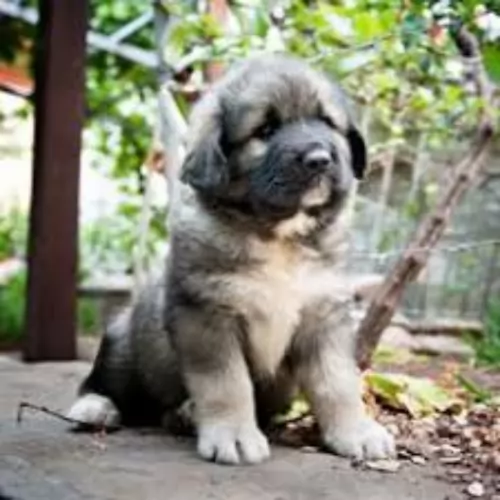 The Sarplaninac is a large, strong, fluffy dog standing at between 54 and 62cm in height and weighing between 30 and 45kg.
The Sarplaninac is a large, strong, fluffy dog standing at between 54 and 62cm in height and weighing between 30 and 45kg.
The coat of the dog is dense, coarse and of medium length. Colors are different shades of grey, white, tan and black. The head is large, the ears are fairly short but are floppy and covered with short hair. The dog is deep chested and the tail is long, often held high and covered with thick, feathery hair.
Protective, reliable, reserved, stubborn and gentle, this intelligent dog is fairly serious, and while he makes a devoted family pet, he is cool and wary of strangers.
Excellent training and socialization makes him well mannered, balanced and obedient around different people. He will tolerate children but won’t take easily to other pets in the house, capable of becoming aggressive with them.
 This is an extremely popular hybrid or designer dog because they are so friendly, gentle, loving lapdogs. In addition, they love to play and cuddle. They are great for single or older people. If they live with a family it should be with older kids because younger kids might hurt them. Be careful how rough you play. They are small and can be hurt easily.
This is an extremely popular hybrid or designer dog because they are so friendly, gentle, loving lapdogs. In addition, they love to play and cuddle. They are great for single or older people. If they live with a family it should be with older kids because younger kids might hurt them. Be careful how rough you play. They are small and can be hurt easily.
The Chiweenie is dedicated to their people and extremely loyal. They are also very cautious and can be nervous. They are always watching what else is happening in their environment and they will bark to alert you if they think there is something or someone out of place. They are not quiet dogs. They are great with other small dogs that they are raised with or used to but not with larger dogs, cats or other animals. They are jealous and protective. Train them out of or to avoid resource guarding. They can be stubborn about these things.
They will play constantly if you let them and they are great travel companions, although noises and activity around them does often annoy them. They are also courageous, clever, lovable and happy. Like most toy or small dog breeds you might have a difficult time housebreaking them and crate training is recommended.
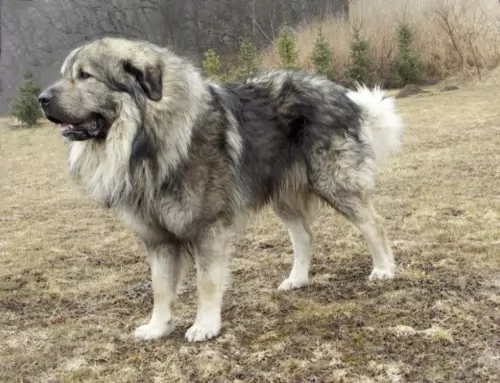 These dogs are protective, but they’re not vicious. When properly raised they are wonderful family pets.
These dogs are protective, but they’re not vicious. When properly raised they are wonderful family pets.
True, it’s a large, strong willed dog that isn’t a good choice for the first-time dog owner. They are good with children, but only children who have been taught how to treat animals with care and patience.
This dog is a powerful guardian type of dog, imposing in size, but it’s all about upbringing, and if you bring him up well then he can make a tremendous pet and companion.
 Chiweenies are a pretty healthy crossbreed with their most prominent issue being allergies. At the same time this hybrid might inherit any of the problems of either of their two parental breeds. These conditions might include:
Chiweenies are a pretty healthy crossbreed with their most prominent issue being allergies. At the same time this hybrid might inherit any of the problems of either of their two parental breeds. These conditions might include:
The tendency for this would come from the Chihuahua parental genes and can result in brain damage but normally is not that bad.
The tendency for this would come from the Dachshund parental genes and if your Chiweenie has a long back you will need to be careful of jump and overzealous playing.
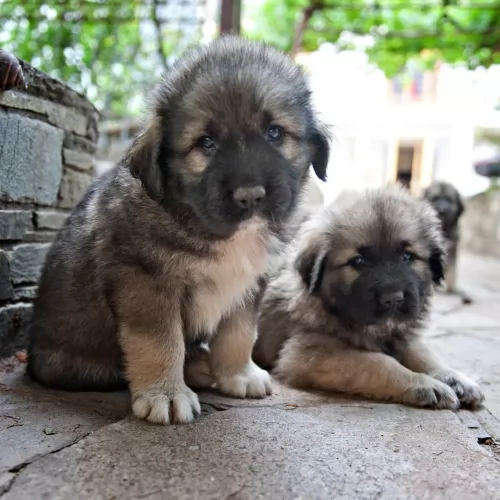 The Sarplaninac dog is a robust dog but he can suffer from health issues such as hip dysplasia, obesity, bloat, ear infections and skin allergies.
The Sarplaninac dog is a robust dog but he can suffer from health issues such as hip dysplasia, obesity, bloat, ear infections and skin allergies.
When your dog gazes up at you with such love in his eyes, don’t be tempted to pop some chocolate into his mouth or let him finish off your ice-cream. Treats like this can damage your pet’s health and give him heat intolerance, breathing difficulties, hypertension, liver disease and diabetes.
 Chiweenies regulate their own food intake, even as puppies. They should be fed twice a day and they are prone to dental issues. Dry food is absolutely recommended.
Chiweenies regulate their own food intake, even as puppies. They should be fed twice a day and they are prone to dental issues. Dry food is absolutely recommended.
In addition to the conditions listed above, the Chiweenie might inherit the issues that affect small dogs most often. This includes:
A sudden drop in blood sugar levels. This can happen if the dog has diabetes and it is unregulated or stress and poor nutrition can also cause it.
These are little dogs with a lot of energy and they burn up a lot of energy. They need to walk every day or have a full-blown play session in the house. They don’t need much space to play in.
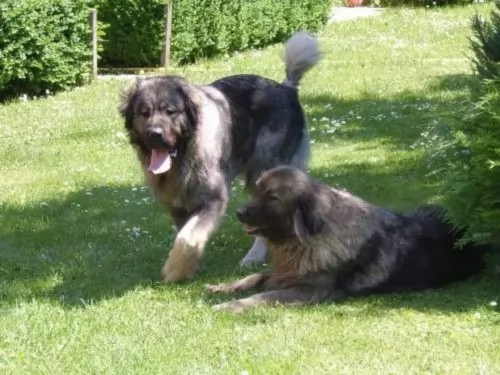 Every dog needs care from puppyhood through to old age.
Every dog needs care from puppyhood through to old age.
Šarplaninacs are looked upon as medium maintenance dogs. The coat is long and thick and requires a firm bristle brush to get their hair brushed.These dogs are moderate shedders so a brush twice a week will do the trick to keep the hair free of loose hair and matting.
Because these dogs have floppy ears, they will need to be checked and cleaned. Floppy eared dogs battle with moisture and wax build-up that increases the likelihood of ear infections.
Check the eyes that they are clear and free of discharge. Eyes with a lot of discharge can be indicative of health problems.
Check for any unusual lumps as cancer often starts with a new lump.
Provide your pet with a nice warm, dry place to sleep.
Keep his vaccines up to date to prevent deadly canine diseases.
Have him or her spayed or neutered if you don’t want puppies. These are regular procedures for a vet and offers health benefits for the dog. Neutering a male improves his character and keeps him from roaming. These dogs are capable of having 3 – 8 puppies.
The Sarplaninac requires decent food if he is to remain healthy. Dog’s stomachs can become upset if they eat all kinds of sweet and spicy human foods.
Commercially manufactured dog food is a good backup food to have because of its convenience. Try to include some home-made food. Simply add into one big pot chicken, brown rice or pasta and spinach, sweet potatoes and carrots. This food can all be chopped up and added in to the dry kibble twice a week. Give this to your pet twice a week and see how his tails wags when he smells it.
Also try to add in some raw meat to his food occasionally.
Ensure there is always a bowl of fresh, cool water within his reach.